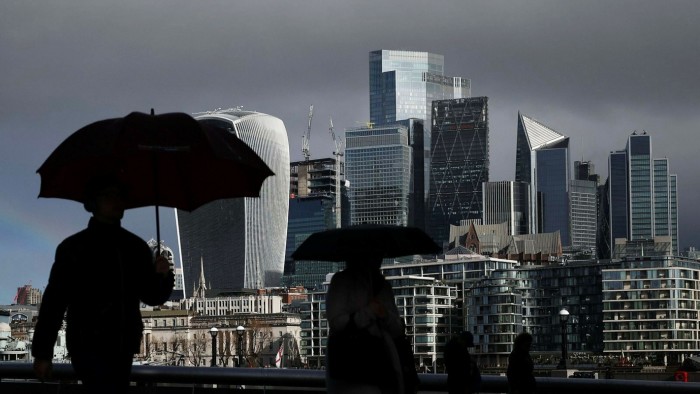Unlock the Editor’s Digest for free
Roula Khalaf, Editor of the FT, selects her favourite stories in this weekly newsletter.
The UK economy failed to grow in the third quarter, in the latest blow to a government already under fire from businesses for its tax-raising Budget.
GDP did not register any growth in the three months to September, the Office for National Statistics said on Monday, down from its first estimate of a 0.1 per cent expansion.
The economy was held back by the dominant services sector, which stagnated over the quarter. Production output fell 0.4 per cent, offsetting a 0.7 per cent increase in the construction sector.
The figures show the economy stalled in the immediate aftermath of Labour’s July election victory, even before chancellor Rachel Reeves’ Budget dented business confidence.
Reeves on Monday admitted that the government faced a “huge” challenge but insisted that the Budget had laid the foundations for long-term growth.
If growth undershoots forecasts made in the Budget, it raises the prospect that the chancellor may need to deliver spending cuts or higher taxes next year to ensure she continues to meet her borrowing rules.
“The challenge we face to fix our economy and properly fund our public finances after 15 years of neglect is huge,” Reeves said. “But this is only fuelling our fire to deliver for working people.”
In another sign of the economy’s weakness, the ONS also revised its estimate for second-quarter growth down from 0.5 per cent to 0.4 per cent.
The government has put boosting growth at the heart of its agenda, but now faces the threat that the economy could have contracted in the final quarter of the year.
Recent figures have pointed to a softening in the jobs market, stubborn inflation and falling business confidence. GDP shrank 0.1 per cent in October, the second straight monthly contraction.
The Bank of England last week predicted zero expansion in the fourth quarter, down from its previous forecast of 0.3 per cent growth.
Paul Dales, at the consultancy Capital Economics, said the downward revision in the third quarter was “mainly due to external influences rather than the domestic economy”, including a bigger drag from net trade. But he said the overall picture showed growth had “ground to a halt . . . due to a combination of the lingering drag from higher interest rates, weaker overseas demand and some concerns over the policies in the Budget”.
Economists said the details of the downward revisions for the third quarter were less worrying than the overall picture, however, with business investment picking up, consumer spending still growing at a healthy pace, and households no longer piling more money into savings.
Elliott Jordan-Doak, senior UK economist at the consultancy Pantheon Macroeconomics, said the revision would not change the BoE’s thinking on interest rates, as much of the weakness had been in government spending and would “fade away” next year.
Last week Andrew Griffith, shadow business secretary, claimed the UK was heading for a “January of discontent” and the possibility of a recession. He said if there was a recession it would be “made in Downing Street”.
